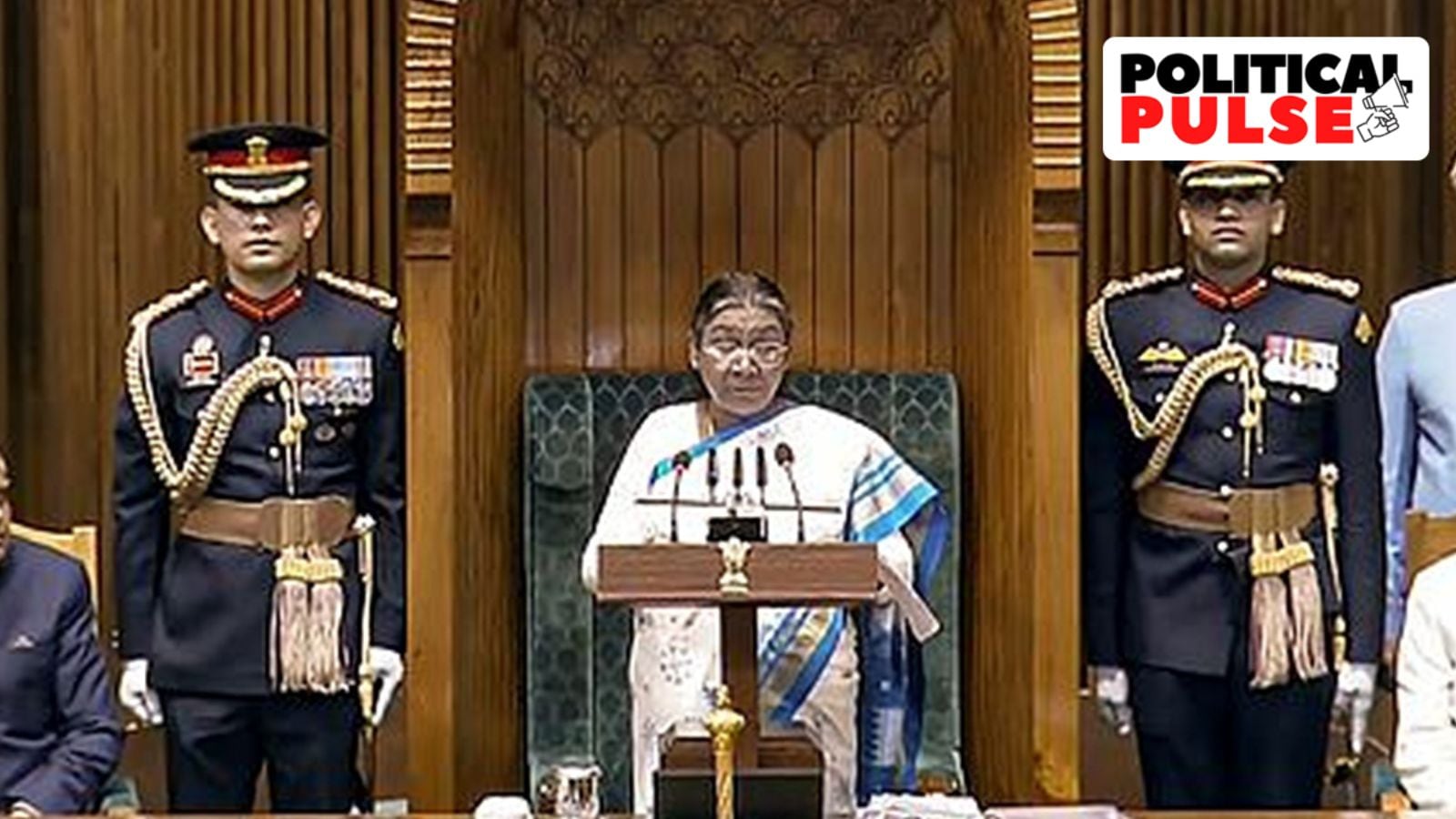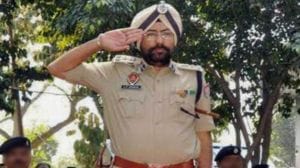In President Droupadi Murmu’s speech to Parliament on Friday, which had several continuities with her previous addresses to the legislature, one difference stood out.
Murmu referred to the middle class eight times in her address to mark the beginning of the Budget Session — which comes days before Delhi votes in the Assembly elections on February 5 — after skipping mentioning the middle class in her address to Parliament in June 2024, just after the Lok Sabha election results that saw the BJP tally dip to 240. In comparison, in her address to Parliament just before the Lok Sabha elections, on January 31, 2024, Murmu mentioned the term middle class three times, clubbing them with the word “poor” on all three occasions. On January 31, 2023, Murmu mentioned the term middle class only once in her address, again alongside the poor.

The middle class surfaces
The President linked the economic progress of India with the “aspirations of the middle class and the fulfilment of those aspirations”.
“The bigger the dreams of the middle class are, the higher the nation soars. It is my government that has, for the first time, openly acknowledged and appreciated the contributions of the middle class on every occasion,” Murmu said.
She then listed the steps that the Union government had taken for the middle class. “Government employees are also significant representatives of the middle class. Recently, my government decided to constitute the Eighth Pay Commission for the welfare of government employees. This decision will lay the foundation for substantial salary increases for government employees in the coming years.”
“Additionally, the Central government has decided to provide a 50% assured pension to lakhs of employees under the Unified Pension Scheme, which has been widely welcomed,” she said, adding, “My government is equally committed to fulfilling the middle class’s dream of owning a home. Laws like RERA have been introduced to safeguard their dreams. Subsidies on home loans are being provided. Through the UDAN scheme, about 1.5 crore people have fulfilled their dream of flying in airplanes. Jan Aushadhi Kendras, offering medicines at 80% concessional rates have helped save more than 30,000 crore rupees for citizens. The multifold increase in the number of seats for education in various disciplines has significantly benefited the middle class.”
In the pre-budget speech last year, the President’s reference to the middle class came when she mentioned the discount the poor and the middle classes were receiving when booking railway and air tickets (the UDAN scheme”.
Story continues below this ad
On January 31, 2023, Murmu mentioned the middle class just once: “A Bharat which has no poverty and where the middle class is also prosperous.”
No reference to Emergency
Unlike the post-Lok Sabha poll address that contained critical references to the Emergency, there was no mention of it this time though this year will mark 50 years of the imposition of Emergency.
In the June 2024 speech, Murmu spoke of how when the Constitution was being formulated, there were forces in the world who wished India to fail. “Even after the Constitution came into force, it was attacked many times. Today is 27th June. The imposition of Emergency on 25th June, 1975, was the biggest and darkest chapter of direct attack on the Constitution. The entire country felt outraged. But the country emerged victorious over such unconstitutional forces as the traditions of the republic lie at the core of India.”
Contemporary concerns
Among the continuities, apart from details of the work done by the government over 11 years, was a clear mention of matters of contemporary concerns: if the President mentioned the deaths of pilgrims in a stampede at the Maha Kumbh this time, she had similarly mentioned the paper leaks in her June 2024 address.
Story continues below this ad
“The historic festival of Maha Kumbh is underway. Maha Kumbh is a festival of India’s cultural tradition and social consciousness. Crores of devotees from across the nation and world have taken holy dip in Prayagraj. I express my condolences over the incident that took place on ‘Mauni Amavasya’. I wish the injured a speedy recovery,” said the President.
Similarly, reacting to what was in the news last June, the President spoke of the government’s endeavour to provide the right opportunities to the youth and brought up the issue of paper leaks, which had become an electoral matter for the youth in a state such as Uttar Pradesh in the Lok Sabha polls.
“Regarding the recent instances of paper leak in some examinations, my Government is committed to a fair investigation and ensuring strict punishment to the culprits,” Murmu said at the time. “Even earlier, we have witnessed many instances of paper leaks in different States. It is important that we rise above party-politics and undertake concrete measures nationwide. Parliament has also enacted a strict law against unfair means in examinations. My Government is working towards major reforms in examination related bodies, their functioning and all aspects of the examination process.”
North East mentioned but not Manipur
Without mentioning violence-hit Manipur, the address this time made specific references to the North East. “My government is conscious of the aspirations of the people of the North East and has worked to eliminate their sense of alienation. Through more than 10 peace agreements, several factions have been brought onto the path of peace,” Murmu said.
Story continues below this ad
In June 2024, too, she had made references to the government’s efforts at lasting peace in the North East in the last 10 years, with no specific mention of Manipur.

































